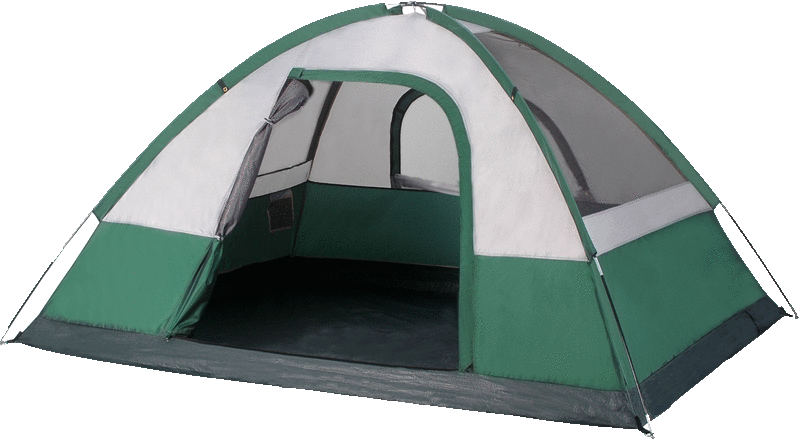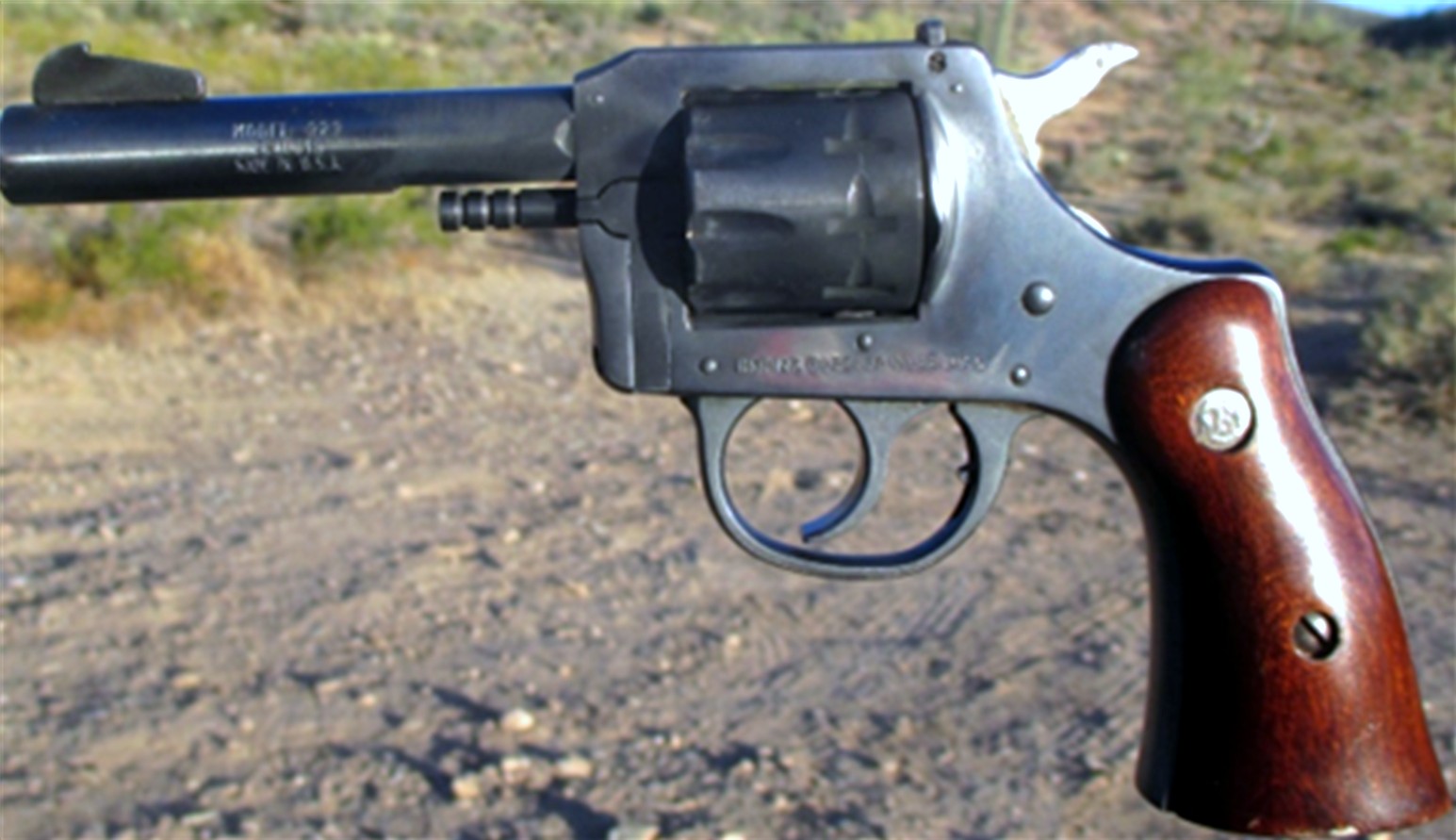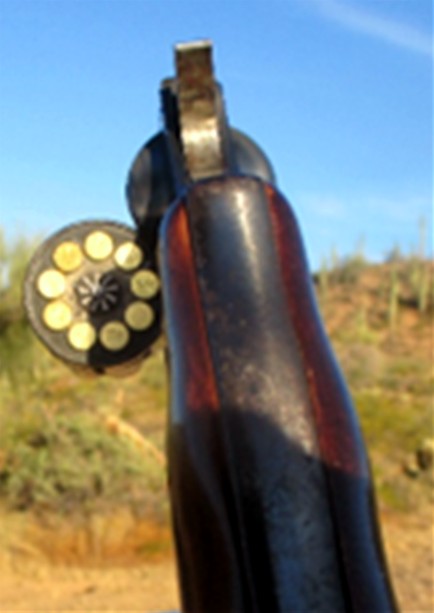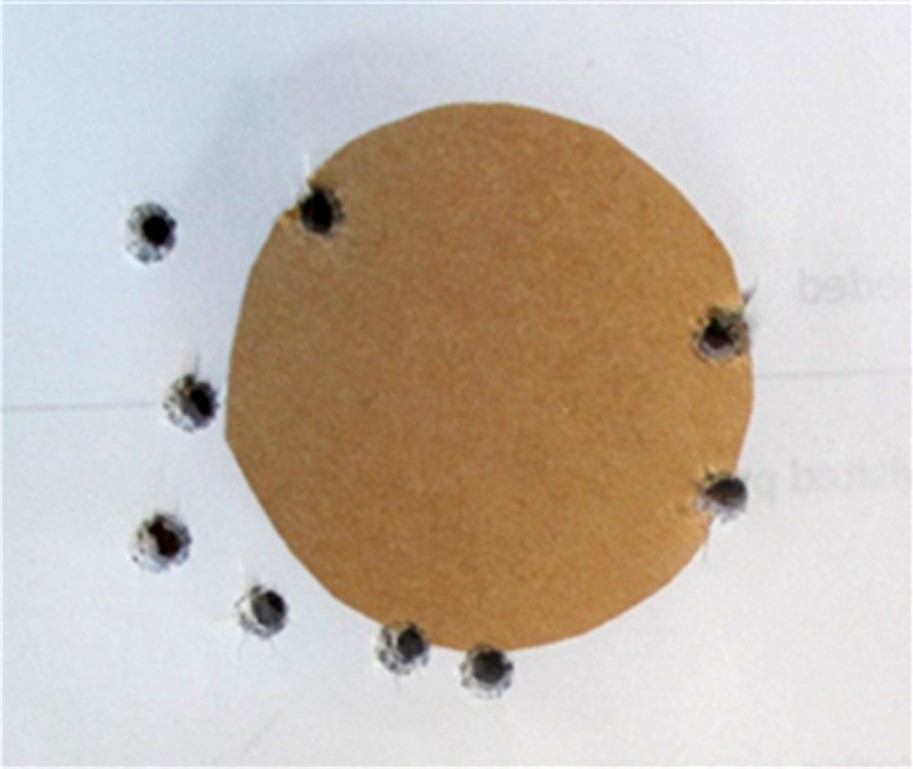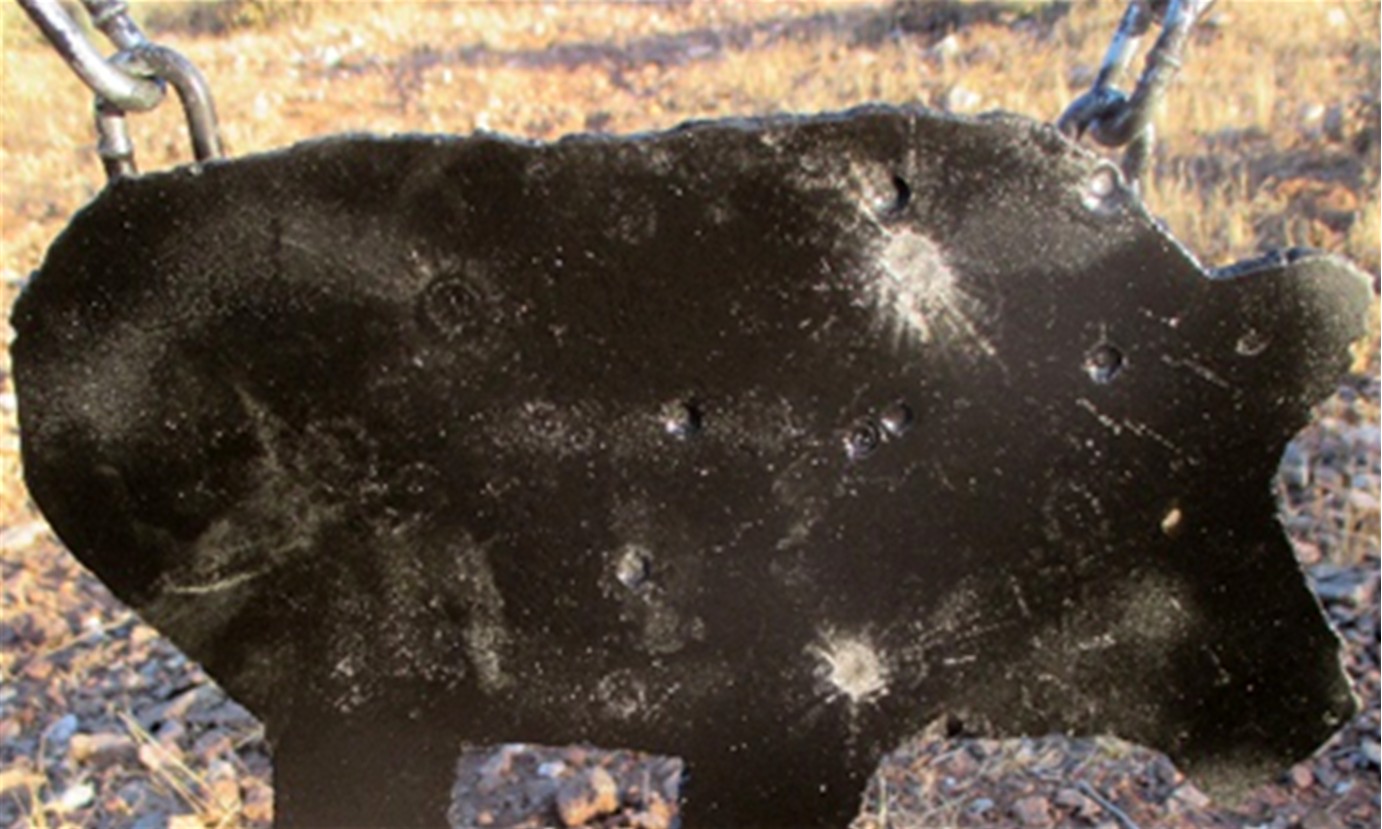Until just recently no revolver chambered in .22LR could be found in my safe. Oh-so-nice
as they are, certainly I did not want to spend much money for one of those 10-shot Smiths
or Colts. Still, I consider a revolver as a better trainer for the grand kids than a
semiauto. In that way my mind declared the need for a rimfire revolver.
Then one morning in David’s garage things developed rather fast. Almost ordering a
Heritage single action revolver, David remembered that he had late friend Smokey’s H&R.
I bought it for a very fair price, knowing he can buy it back for the same money any time
he wants to. And, as I learned a few days later, Steve, also present that morning, soon
after ordered one of the Heritage revolvers.
Now, that H&R Model 929 ain’t no Korth, Smith, Colt or Ruger. Neither in performance nor
in looks. Never claimed to be. Having just recently spent much range time with my Redhawk
and S&W Model 28, the 929 looks and feels, well, junky. But it is a double action, made
of steel with zero plastic. It even has a firing pin transfer bar. Meaning, the hammer
will not transmit its blow onto the firing pin unless the trigger is pulled all the way
back.
Easy guess that this is called Model 929 because it comes with a 9-shot cylinder. Barrel
is 4”, gun weighs 26.1 ounces. Rear sight is adjustable for windage. To appreciate the
piece more, I for a few moments pretended to again be about 15 and living in Germany.
Then that H&R would have been an unbelievable treasure, of course also totally illegal for
me to possess. Ammo I was able to get from the local shooting club, RWS Standard – buy a
box, shoot some in practice, sneak the rest home. Only my older brother and I could and
would have let in on having the gun. And when our parents would not be around, we’d test
the revolver in the family business workshop. Because ambling into the woods to crank off
rounds was also verboten, hence would have been risky.
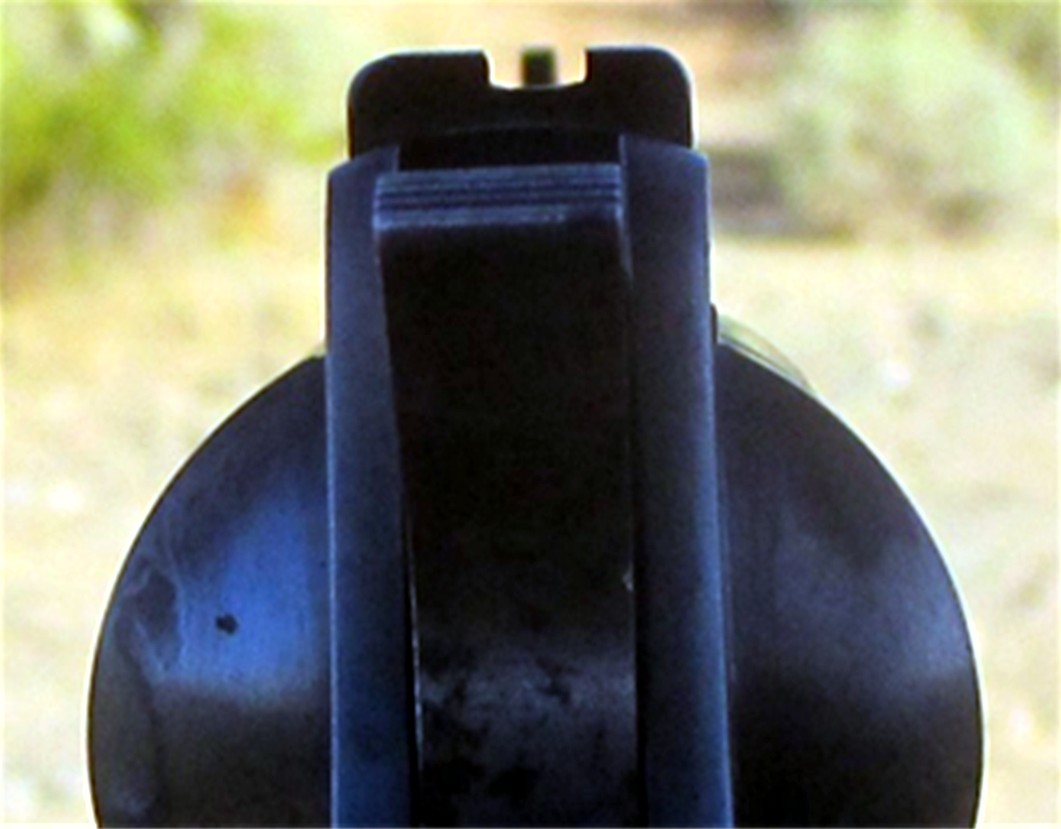
|
Back to reality. Of course I took the H&R out with me on my next desert trip. It
functioned fine, firing single and double action. All nine empties ejected with one
stroke, with the right amount of force. Single action trigger is nothing to brag about
at 5.7 lbs. To avoid misfires, each round needs to be pushed hard into each of the nine
chambers. Worse, to me the sights were just shy of worthless. Front post is skinny, and
the notch in the rear blade simply too narrow. Besides, after straining for a somewhat
useful sight picture the bulk Winchester High Speed HPs, shot at 15 steps, landed high and
left. Oh well.
Back home I took a file to it. Made the notch wider on its right side and kissed the top
a little. For sure that helped with the sight picture. After a second set of strokes and
some drift adjustment I got this:
I called that good enough, again fired at 15 steps, with hands (not the gun) resting on
bags on top of my shooting table.
Up next was the “easy” silhouette, pig at about 63 paces, just to see what I could do
with this revolver. Firing from standing offhand I had hit the pig twice by the time
the cylinder was empty again. Was that mostly luck? Several more times I emptied the
gun at the pig, and almost always made two hits, once three. That’s the level of
performance I seem to be at with this 929.
Then came our BLM summer closure, no target-type shooting in the desert. By early
September we were allowed again. That’s when Steve had his wheelgun ready. Here
now some data about his new nine-shooter:
Heritage Rough Rider, single action only, 4.75” barrel. Its frame is made from aluminum.
Ejector rod housing, loading gate and safety – yep, it features such a device - are
plastic. It weighs 29 oz, and trigger trips just shy of 3.5 lbs.
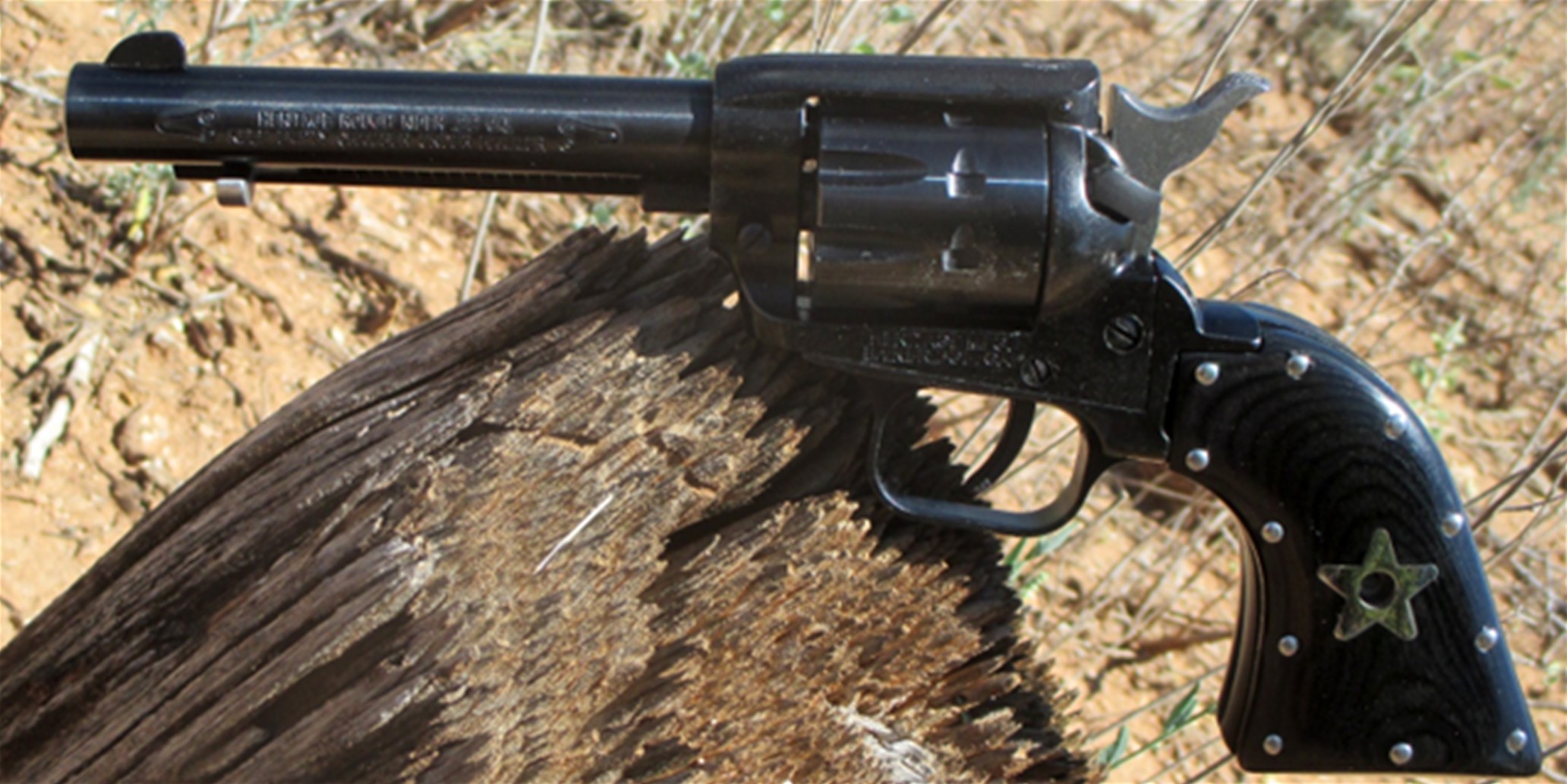
|
During a scouting trip for deer Steve finally got to shoot his budget gun. First
several shots went right over the pig silhouette, set at 15 yds. Unlike for my 929,
this Heritage does not offer an easy way to adjust for elevation. To correct the
‘shooting high’, either file down the entire length of the fixed rear notch, or
increase the height of the front blade. Meaning, Steve will have to aim low. After a
few cylinders of practice two more things became obvious. One, ammo lasts longer.
It takes time to first bring the hammer to half-cock, then advance the cylinder for
each round to be loaded. Even slower was ejection of the empties. That’s because
while the cylinder advances with an obvious and easily felt ‘click’, it does not line
up with the ejector rod. Just a little more rotation for each empty was required to
be pushed out.
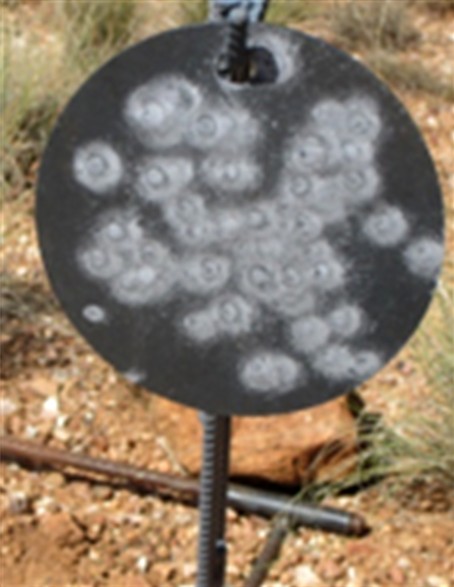
|
Then we bet quarters, as we’re prone to do. Since the H&R 929 has the theoretical
advantage of double action fire, our competition was limited to accurate shooting.
With an 8-inch plate set at 15 steps, hits were too easy, and no money changed hands.
I was shooting Federal Auto Match, Steve bulk Rem ammo. Then we set that plate at
30 steps. At least at first, misses seemed to dominate hits, and after 18 shots each
Steve was up 25 cents. In the final battle, however, I was able to win those back.
By then I had learned that H&R 929 enough to hold and squeeze for 8 hits out of 9.
Bottom line: for the money I am happy with that H&R rimfire wheelgun. Steve with his
– not so much.

![]()
